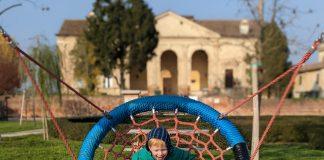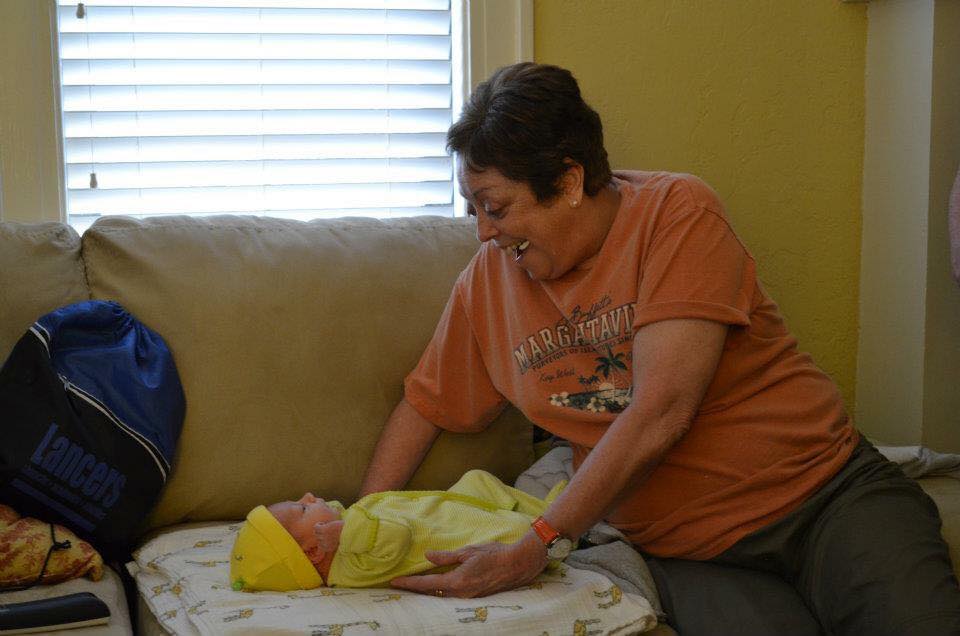I lost a dear friend today. She was one of my people.
It’s a loss that I now feel acutely, but I know it will settle into chronic once I’ve processed that she is truly gone. Kathy’s death wasn’t sudden or unexpected; she had been ill with cancer, and it had become clear the last couple of months that she wasn’t going to survive this pancreatic cancer (few people do). But the news was a sucker punch to the gut regardless, and I’ve been dreading this day for the past several weeks.
I didn’t cry when I received the news of her passing. I’ve already cried and raged against the unfairness of life. I’ve already tried to imagine my world without her in it and grieved for her children who lost their mother way too soon. I’ve already felt outrage of the unfairness that her grandchildren are too young to remember her for long.

The worst part of all of this? We live a four-hour plane ride apart.
It’s been over a year since I hugged her. It was during our last visit, a weekend that was quickly put together where our crew of five firm high school friends met to digest the devastating news of her cancer diagnosis.
It was a glorious weekend full of the usual things girlfriends who have known each other over forty years do: eating, laughing, crying, and reminiscing. The last thing the five of us did together was huddle and lift her up in prayer, beautifully lead by the one of us who does it best. The words of prayer and comfort strengthened us to go back to lives and jobs that have two of us living in different states, and the other two living a two-hour drive from Kathy.
We tried to get the five of us together during the progression of her illness. But several false starts, failed attempts, a global pandemic, and family circumstances conspired against our efforts to get the five of us in one room again.
We took advantage of technology, with regular Zoom sessions and frequent group texts. A weekend visit was cancelled hours before when two distant friends boarded our respective flights because Kathy was unexpectedly hospitalized. Efforts to reschedule the visit were unsuccessful.
In the end, my last visit with her was like it had been all year, via video chat.
She in a hospital bed, I was stealing a few minutes at work, and two of our crew were sitting vigil, holding the phone so she could see me. She couldn’t answer me, but she recognized me and we both cried; she died a few days later.
I tried to explain to Kathy once why her friendship was so special to me.
It all started when I was the new kid, sophomore year of high school. Halfway through my dad’s last assignment, my parents decided they loved the Puget Sound area so much they were going to retire there, despite it not being home for either one of them and having no family there.
Once the decision was made, they bought a house off-post and even though we were in the same school district, it put us in a different attendance zone. I was essentially starting all over again, and most of my friends would be attending what unexpectedly became my rival high school.
Participating in sports and being a cheerleader afforded me the opportunity to recognize and be recognized by some of the kids at my new school. Kathy was one of them.
We were cheerleaders at our respective junior highs and had interacted briefly at sporting events. In what turned out to be a stroke of luck for me, we ended up sitting next to each other in sophomore English, becoming reacquainted and bonding over a mutual distaste for the ill-tempered teacher.
She invited me to go shopping with her one day, I accepted, and a strong friendship was born. Kathy was just being Kathy with the invitation: generous, caring, and sincerely interested in others. But her extension of friendship opened a door for me to the acquaintance of people that had all grown up together.
If it hadn’t been for her genuine kindness and acceptance of me, my high school experience might have been completely different.
We attended different colleges and both married soon after graduation. I left Washington and never lived there again, and she never left. But we kept in touch: writing letters, talking on the phone, and visiting as often as we could. As we have gotten older, our visits were more frequent and easier to schedule with our children grown. Her untimely death is not how things were supposed to end.
In retrospect, as excruciating as it was, I learned some things about grieving from a distance:
Don’t go it alone

With today’s technology, there is no reason to feel secluded. Keep in touch with family, friends, and people close to the situation. There are online platforms for just this purpose, such as CaringBridge. The five of us communicated during our regularly scheduled times as well as whenever we needed support.
Toward the end, when Kathy became so unwell that communication was impossible, we set up a network with her family, with one of us checking in and reporting back to the rest so as not to overburden her family with constant requests for information. This was huge for me, a lifeline that kept me from feeling completely isolated.
Act
Don’t wait to say what you want to say or do what you want to do.
The four of us consulted with each other, assessed needs, and brainstormed ideas on how to boost morale and help Kathy’s family in meaningful ways. We took turns making care packages with themes such as sunshine, comfort, and warmth. The two that live close enough offered to give rides to doctor’s appointments and chemotherapy sessions.
Manage the stress

I have spent a lot of unproductive moments this past year, unable to concentrate or do anything, feeling overwhelmed by the enormity of the situation, and wanting to make it all go away. How to make everything better for Kathy and her family? I have a hard time accepting powerlessness. I think we all do.
When hearing of a friend or neighbor in need, most of want to spring into action: make food, clean houses, do errands, something, anything to feel like we are helping and have some control over the situation.
Managing stress looks different for everyone. Have the things/activities/people that help you decompress in place and use them. The last thing the person you love would want is for you to fall apart on their behalf.
Plan
Think about how life is going to look without them. The four of us are all worried what our next gathering is going to be like when we are only four who should be five. Are our remaining friendships going to survive this? We harbor no illusions that it will be the same.
But we will carry on and bring our dear friend’s memory along with us, just as we know she would want. We won’t stop wondering why a beautiful and kind soul had to endure such physical suffering that ended a life not fully lived. We have decided to do some concrete things, collectively and personally, to honor and remember Kathy’s life and legacy.
I say again, it wasn’t supposed to end like this.
The five of us were going to grow old together and do the things that old ladies do: brag about our grandchildren, celebrate each other’s retirements from amazing careers, and continue our tradition of annual girls’ trips. But life rarely goes as planned. Friends are left friendless, spouses spouse-less, and children motherless.












Absolutely one of the most well written, heartfelt and useful essays ever. A true guideline to helping us all grieve, long distance or next to the bed. Mother woukd have been so proud of ur thoughtfulness and insight. Thank you for sharing. Kathy
A fitting tribute to your friend. If only everyone had people in their lives who cared so deeply.
Comments are closed.